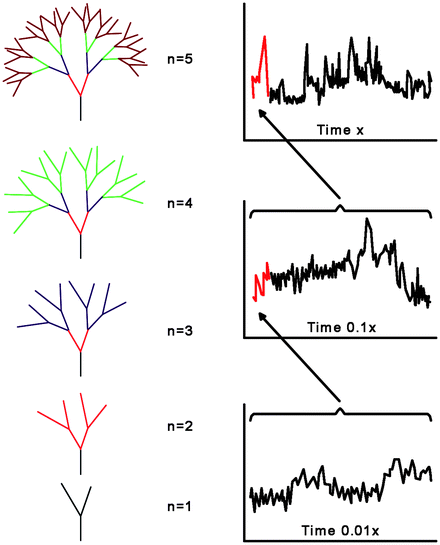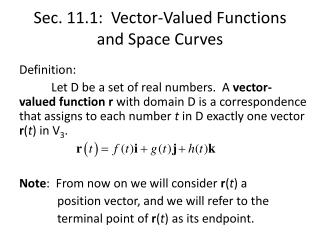- 11.1 Area Between Curves Ap Calculus Calculator
- 11.1 Area Between Curves Ap Calculus Formulas
- 11.1 Area Between Curves Ap Calculus Algebra

Recall that the area under a curve and above thex-axis can be computed by the definite integral. If we have two curves
( y = f(x) ) and ( y=g(x) )
In calculus, the evaluate the area between two curves, it is necessary to determine the difference of definite integrals of a function. The area between the two curves or function is defined as the definite integra l of one function (say f (x)) minus the definite integral of other functions (say g (x)). 11.1 Moving cosine with a small optical illusion-the darker Fig. 11.2 Linear functions give planes. Bands seem to go from top to bottom as you turn. Of course multidimensional calculus is not only for waves. In business, demand is a function of price and date. In engineering, the velocity and temperature depend on position x and time t. (a) Compute the area enclosed within the ice cream cone (including the scoop por-tion). (b) After a bite is taken from the top, the remaining area is enclosed by y= 6jxj, y= 16 x2, and y= x2 + 12. Compute the area of the remaining portion. Consider the region R shown below: The area of the region Ris equivalent to Z 1 1 1 1 + x2 dx. For each problem, find the area of the region enclosed by the curves. You may use the provided graph to sketch the curves and shade the enclosed region. 5) y = −2x2 − 1 y = −x + 3 x = 0 x = 1 x y −8 −6 −4 −2 2 4 6 8 −8 −6 −4 −2 2 4 6 8 6) y = 2 3 x2 y = x x y −8 −6 −4 −2 2 4 6 8 −8 −6 −4 −2 2 4 6 8 7) y. The area under a general curve, you need calculus. Each of these situations involves the same general strategy—the reformulation of precalculus mathematics through the use of a limit process. So, one way to answer the question “What is calculus?” is to say that calculus is a “limit machine” that involves three stages.
such that
[ f(x) > g(x) nonumber]
then the area between them bounded by the horizontal lines (x = a) and (x = b) is
[ text{Area}=int_{c}^{b} left [ f(x) - g(x) right ] ;dx. nonumber]
To remember this formula we write
[ text{Area}=int_{a}^{b}text{(Top-Bottom)};dx nonumber]
Example 1

Find the area between the curves ( y=x^2) and (y=x^3).
Solution
First we note that the curves intersect at the points ((0,0)) and ((1,1)). Then we see that
[ x^3 < x^2 nonumber]
in this interval. Hence the area is given by
[begin{align*} int_{0}^{1} left( x^2 - x^3 right) dx &= {left[ frac{1}{3}x^3 - frac{1}{4}x^4 right]}_0^1 &= dfrac{1}{3} - dfrac{1}{4} &= dfrac{1}{12}. end{align*}]
Area Bounded by Two Functions of (y)
Example 2
Find the area between the curves ( x = 1 - y^2 ) and ( x = y^2-1 ).
Solution
Here the curves bound the region from the left and the right.
We use the formula
[ text{Area}=int_{c}^{b}text{(Right-Left)};dy. nonumber]
For our example:
[begin{align*} int_{-1}^{1}big[ (1-y^2)-(y^2-1) big] dy &= int_{-1}^{1}(2-y^2) dy &= left(2y-dfrac{2}{3}y^3right]_{-1}^1 &=big(2-dfrac{2}{3}big)-big(-2-dfrac{2}{3} big) &= dfrac{8}{3}. end{align*}]
Example 3
Find the area between the curves ( y =0 ) and (y = 3 left( x^3-x right) ).
Solution
When we graph the region, we see that the curves cross each other so that the top and bottom switch. Hence we split the integral into two integrals:
[begin{align*} int_{-1}^{0}big[ 3(x^3-x)-0big] dx +int_{0}^{1}big[0-3(x^3-x) big] dx &= left(dfrac{3}{4}x^4-dfrac{3x^2}{2}right]_{-1}^0 - left(dfrac{3}{4}x^4-dfrac{3x^2}{2}right]_0^1 &=big(-dfrac{3}{4}+dfrac{3}{2} big) - big(dfrac{3}{4}-dfrac{3}{2} big) &=dfrac{3}{2} end{align*}.]
Application
Let (y = f(x)) be the demand function for a product and (y = g(x)) be the supply function. Then we define the equilibrium point to be the intersection of the two curves. The consumer surplus is defined by the area above the equilibrium value and below the demand curve, while the producer surplus is defined by the area below the equilibrium value and above the supply curve.

Example 4
Find the producer surplus for the demand curve
[ f(x) = 1000 - 0.4x^2 nonumber]
and the supply curve of
[ g(x) = 42x. nonumber]
Solution
We first find the equilibrium point:
11.1 Area Between Curves Ap Calculus Calculator
We set

[ 1000 - 0.4x^2 = 42x nonumber ]
or
11.1 Area Between Curves Ap Calculus Formulas
[ 0.4x^2 + 42x - 1000 = 0. nonumber]
We get
[x=20 nonumber]
hence
[y=42(20)=840. nonumber]
We integrate
[ begin{align*} int_{0}^{20} left ( 840 - 42x right ) dx &= {left[ 840x-21x^2 right] }_0^{20} [4pt] &= 8400. end{align*}]

11.1 Area Between Curves Ap Calculus Algebra
Exercises
- Find the area between the curves ( y = x^2 ) and ( y =sqrt{x} ).
- Find the area between the curves ( y = x^2 - 4) and ( y = -2x ).
- Find the area between the curves ( y = 2/x ) and ( y = -x + 3 ).
- Find the area between the curves ( y = x3^x ) and ( y = 2x +1 ).
Contributors and Attributions
- Larry Green (Lake Tahoe Community College)
Integrated by Justin Marshall.